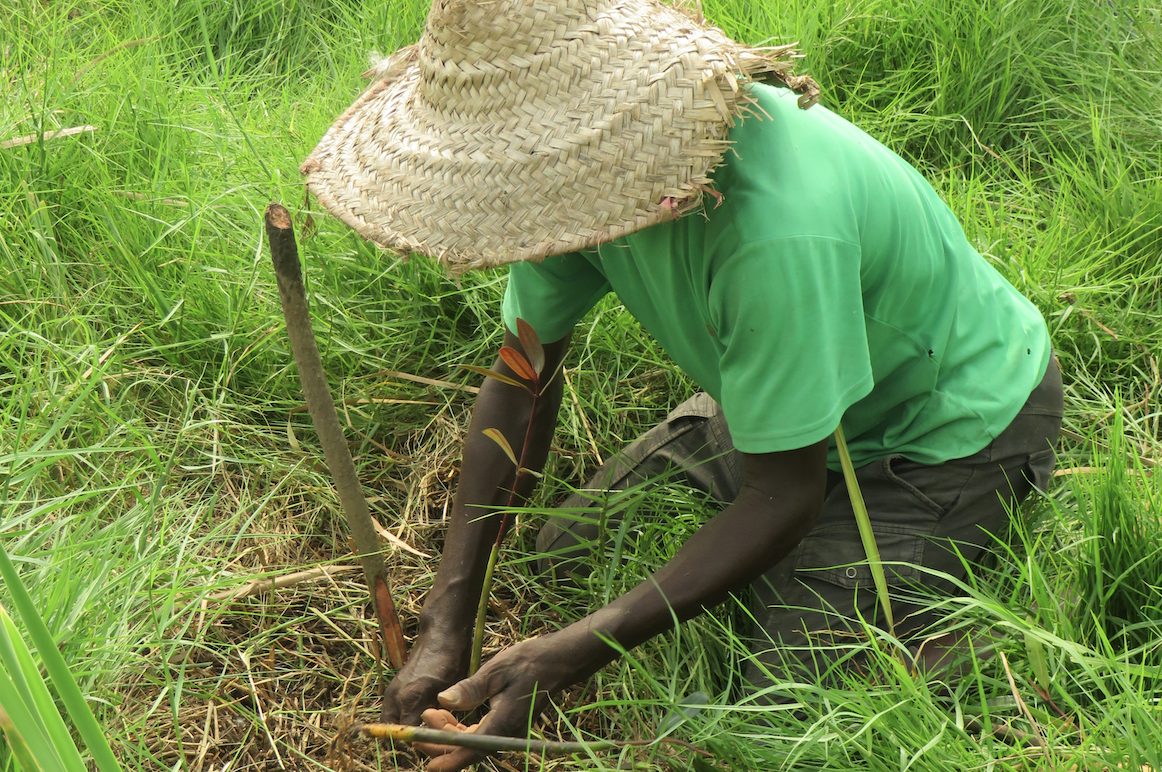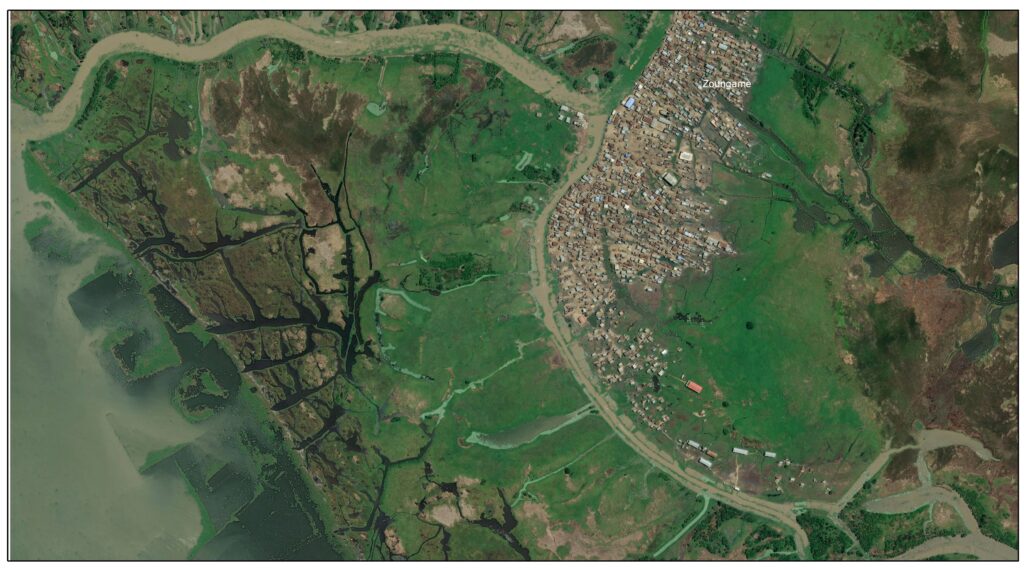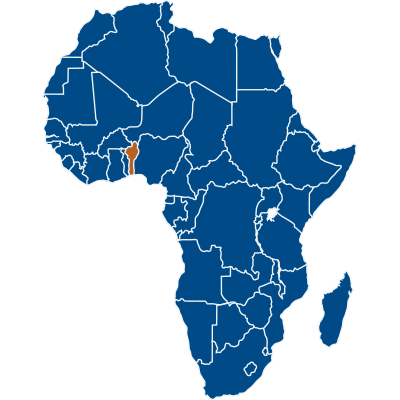In the south of Benin, we work in two catchment areas: the Ouémé and the Mono. These rivers are vital water resources for thousands of people. They are both surrounded by a natural wonder: the mangroves.
Mangroves consist of shrubs and trees with prominent roots protruding above the river water. Found in coastal areas and river deltas, they protect communities from storms and floods. They prevent erosion, retain sediment particles and filter water. They prevent erosion, retain sediment particles and filter water. On top of all that, they are essential for fish reproduction, important for biodiversity and fisheries.
But the mangroves are under pressure. Around the Mono, mangrove trees are being cut down for charcoal for the rapidly increasing population. Near the Ouémé, the trees are giving way to agriculture. Where mangroves disappear, so do the many benefits they offer.

What we do
With the Benin-based organisations CREDEL and Éco-Bénin, we are looking for solutions that meet the needs of the residents, while also preserving the mangroves. A selection of our activities:
- We reforest mangrove trees, but also fast-growing trees for charcoal production.
- We clear small transport channels and tributaries of the rivers from excess sediment.
- We remove the invasive water hyacinths, which overgrow entire lakes and stretches of river so much that they not only take away all life in the water, but also restrict smooth transport.
- We experiment to transform the water hyacinths into charcoal, so no mangrove trees have to disappear.
These activities are part of a broader program in Benin that aims to keep clean and sufficient water available for people and nature alike. Efforts are being made to protect water resources and the availability of water for food production.


